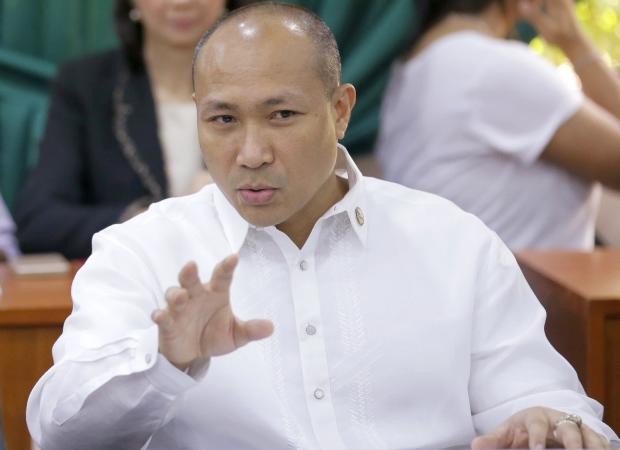‘This is a democracy’: International court may be next for Duterte
President Rodrigo Duterte acknowledged Tuesday that allegations he induced extrajudicial killings in his war on drugs could be raised to the International Criminal Court after an impeachment case failed in the House of Representatives.
“Yeah, he can go ahead. He is free to do it. This is a democracy,” Duterte said in reaction to a lawmaker saying he was considering bringing a case against him to the court in The Hague, Netherlands.
The impeachment complaint killed by a House committee Monday accused Duterte of multiple murders and crimes against humanity for adopting a state policy of inducing police and vigilantes into killing more than 8,000 suspected drug users and dealers outside the rule of law. The complaint also accused him of corruption, unexplained wealth, and taking a “defeatist stand” against China’s in the territorial row in the South China Sea.
“It is true that there are deaths – is there a drug war where no one is killed?” Duterte said. “But not in the character and kind that I was dished out, including ordering the killing of a child.”

Rep. Gary Alejano gestures before a justice committee hearing on Monday, May 15, 2017, on the impeachment complaint that he filed against President Rodrigo Duterte at the House of Representatives. Philippine lawmakers killed an impeachment complaint accusing Duterte of crimes against humanity for the thousands of people who have died in his anti-drug crackdown. (Photo by AARON FAVILA / AP)
The dismissal of the complaint filed Rep. Gary Alejano was widely expected since the House is dominated by Duterte allies. But the president’s critics hope the procedure could bolster a lawsuit filed against him by a Filipino lawyer before the ICC for alleged extrajudicial killings by showing that domestic efforts to stop Duterte have failed.
Article continues after this advertisementThe dismissal of the complaint, filed in March, bars any new impeachment case against Duterte until next March.
Article continues after this advertisementSince taking office in June, Duterte’s war on drugs has killed 7,000 to 9,000 suspected drug dealers and addicts, according to human rights groups. The government refutes that, releasing data on May 2 showing nearly 4,600 people have been killed in police anti-drug operations and homicides found to be drug-related.
During Monday’s hearing, Rep. Rodolfo Fariñas, the majority floor leader, asked Alejano repeatedly if he had personal knowledge of allegations he made in his complaint.
Alejano said he had no personal knowledge as a witness, but that he had personal knowledge as a complainant based on official records, affidavits of witnesses and Duterte’s public pronouncements. Several lawmakers pointed to that distinction to say Alejano’s allegations were hearsay.
Forty-two of 49 committee members then voted to declare the complaint insufficient in substance.
A frustrated Alejano told reporters that he would discuss with his colleagues from the Magdalo party whether they should file their own complaint before the ICC.
He said it was clear that the impeachment procedure “was railroaded” and that the House was “not independent.”